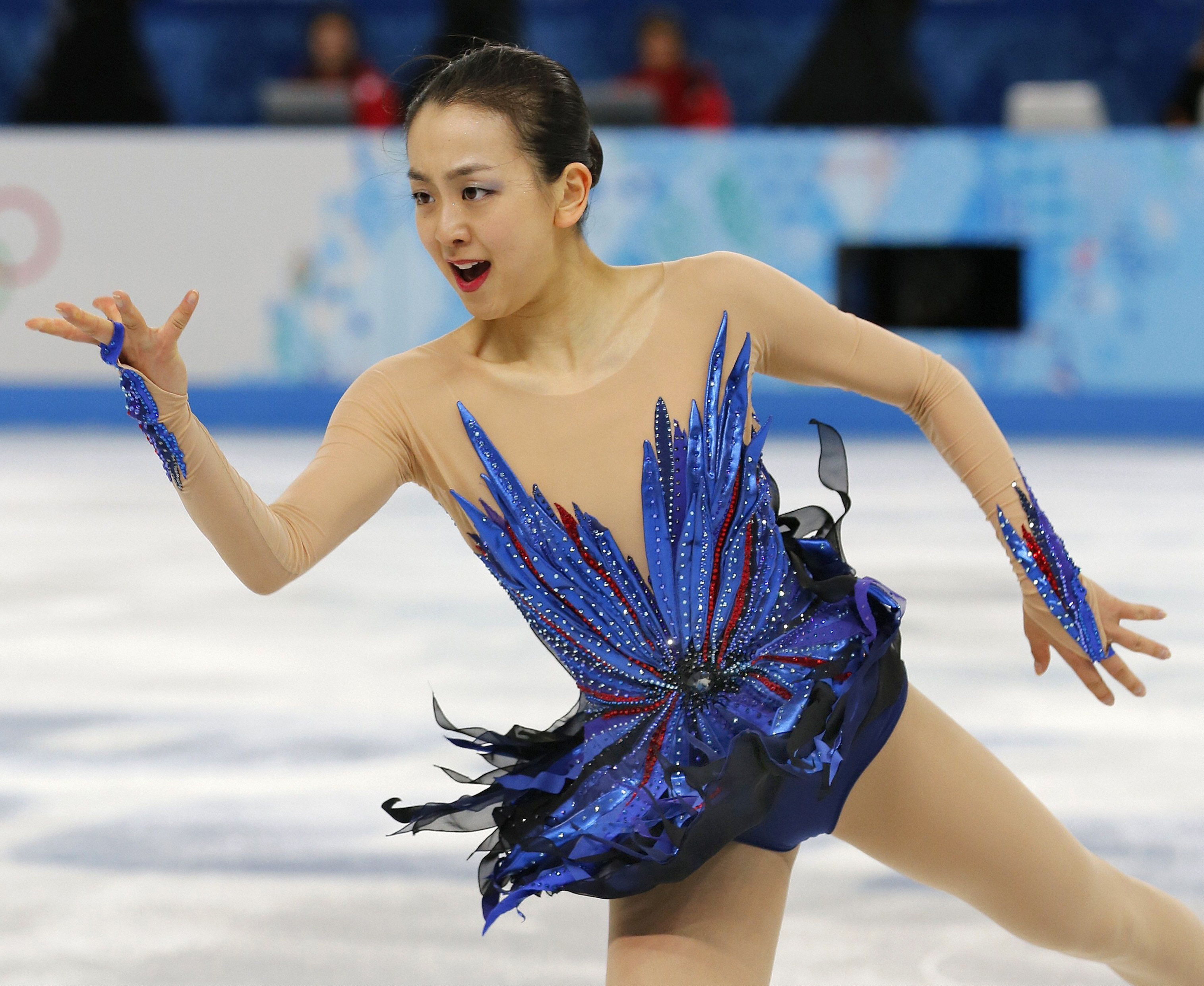Is a post-Olympic worlds really worthwhile?
This is the question on the minds of a great many people these days, especially in light of the fact that four of the six singles medalists will not be participating in next week's world championships in Saitama.
Russia's Adelina Sotnikova and Yuna Kim will bypass the event, along with Canada's Patrick Chan and Kazakhstan's Denis Ten, for various reasons.
The problem is that every time this occurs it takes luster away from what is supposed to be a marquee competition. There will be 18,000 fans packed in Saitama Super Arena several days in a row for the worlds, don't they deserve to see the very best the sport has to offer?
Certainly the International Skating Union and its sponsors see the value in holding the worlds so soon after the Olympics, but the anti-climactic feel to it really makes you wonder.
After the big show last month in Sochi, if many of the top skaters can't get up for it, what's the point?
This will mark the third time that Japan has hosted — or been stuck with — a world championships following the Winter Games. It happened previously in 1994 (Chiba) and 2002 (Nagano).
There is an asterisk this time, because the upcoming worlds were originally slated for March 2011 but were moved to Moscow in the wake of the March 11 disaster.
Ice Time believes that the ISU has two legitimate options going forward with the world championships held in an Olympic year:
1) Not hold it at all.
2) Stage it before the Olympics and make it a qualifier for the grander event.
It would seem to me that the second option would be the better one. There will be those who say: "You can't do that because . . . " But that is nonsense.
Various national championships would have to be adjusted. Japan usually has its competition around Christmas, while the United States conducts its in January.
The Grand Prix calendar and Grand Prix Final would have to be moved up a few weeks, which may not be ideal, but it is certainly doable.
Ice Time turned to two of the most prominent skating writers in the world, Christine Brennan of USA Today and Phil Hersh of the Chicago Tribune, for their thoughts on the post-Olympics worlds.
Both have been covering the sport for decades and are bona fide experts.
"When I first started covering figure skating, I was surprised to hear that the sport held a world championships a month after the Olympics. It sure seemed like an afterthought to me then, and it still feels that way," Brennan said. "That said, I do think it allows the story lines from the Olympics to play out a bit more if some of the medalists come to the worlds, and that can be interesting. It also allows rising stars to win their first world medals and start the journey to the next Olympic Games."
Brennan, the author of the best-selling book "Inside Edge," does see value in holding the worlds after the Olympics.
"I've covered two of these so-called lame-duck world championships, in 1998 and in 2006. At the Minneapolis worlds in 1998, it was a chance at redemption for Michelle Kwan, who lost the gold medal to Tara Lipinski a month earlier in Nagano," Brennan noted. "Tara didn't come to worlds, so Michelle got back on the winning track there. In 2006 in Calgary, Kimmie Meissner won the world championship over Sasha Cohen in a surprising upset. So both were memorable in different ways."
Hersh laments the decline in popularity of skating in the United States and elsewhere in recent years.
"Japan is the last country in the world that seems to care about the sport," he commented. "They should give the worlds to Japan two years out of four (or if they killed the post-Olympic worlds, once every cycle.)
"Even when the U.S. cared about skating, no one cared about the post-Olympic worlds other than the one in 1998 (because it was held in Minneapolis).
Hersh pointed out that since the scoring system was changed in 2004, the Olympic champions have frequently chosen to bypass the worlds a few weeks later. Kim was a rare exception following the 2010 Vancouver Games.
"Under the 6.0 system, it just re-crowned the Olympic champion (if they competed, which most did, knowing it was another certain title)," he said.
"Under the new system, (last three Olympics), very few medalists have gone on to compete . . . with only five of the 12 medalists coming to Japan it clearly is not a meaningful competition. Were Mao (Asada) to win, for instance, there would be a mental asterisk about the absence of Yuna and Adelina."
Hersh makes no secret of his feelings on the post-Olympic worlds.
"Dump it," he states. "Make Olympic results determine places for the subsequent worlds."
Brennan regrets that the ISU is not more proactive in getting the Olympic champions to enter the ensuing worlds.
"What can the sport do? It should do everything possible to encourage Olympic gold medalists to attend although I understand why they don't," she said.
Brennan feels that it would make for compelling drama if all of the medalists in women's singles were present in Saitama following the scandal in Sochi.
"Could you imagine the interest if the women's Olympic medalists battled again, without the obvious and ridiculous conflicts of interest that occurred in Sochi?" Brennan said. "Many would tune in for that. And I would bet the result would be very different. But we'll never see that, which is too bad."



















With your current subscription plan you can comment on stories. However, before writing your first comment, please create a display name in the Profile section of your subscriber account page.